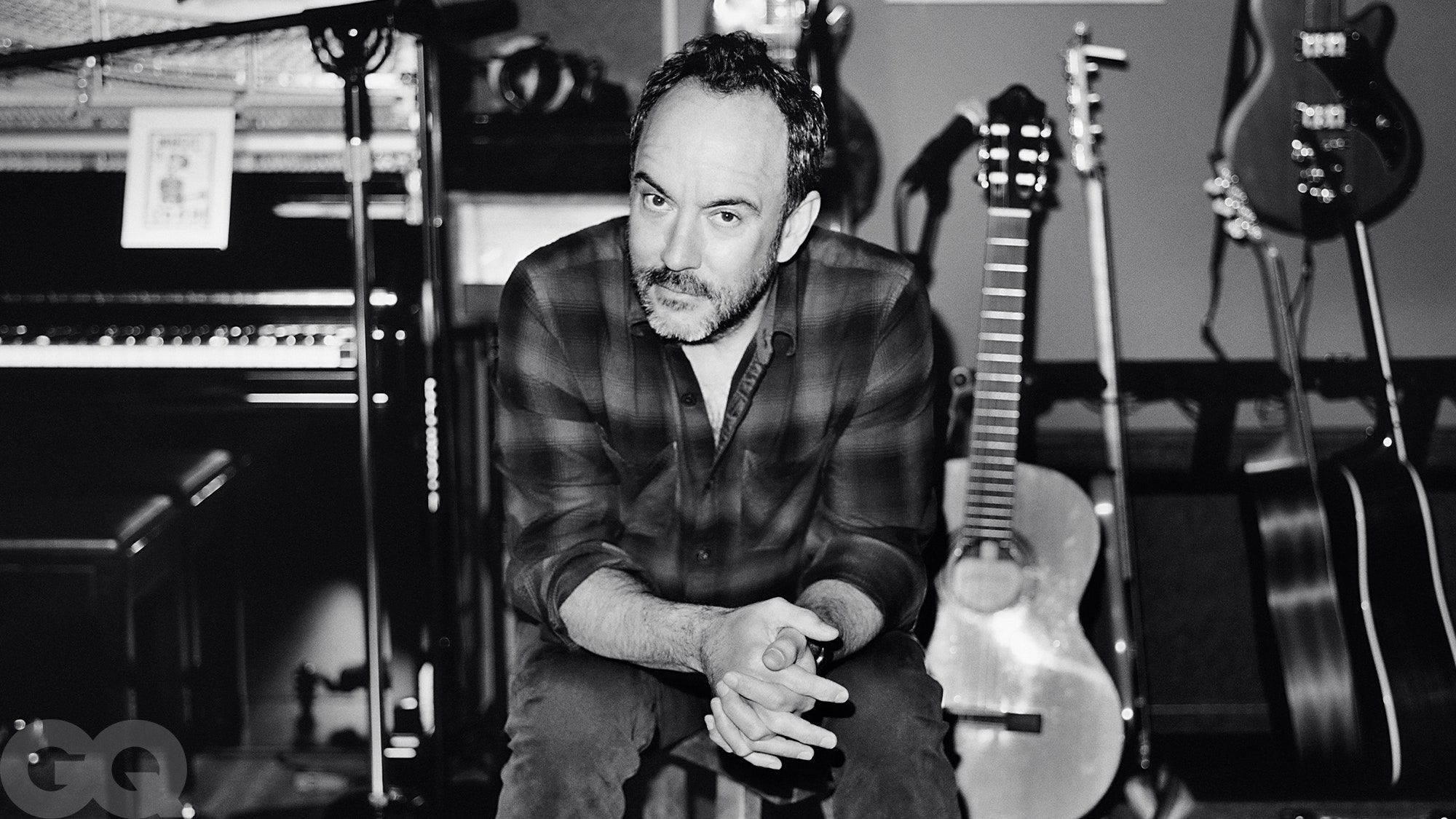The Dave Matthews Guide to Living and Dying

“It’s about the idea that we’re all just sort of acting something out—we’re not making up anything,” he says. “We’re just powerless, and then we die. But it’s so upbeat, in a way that I think it makes it seem like, ‘Well, it’s not so bad, to be that.’ ”
Matthews says he understands why a lot of American Gen X’ers felt profoundly disillusioned and powerless to change things. “But I had grown up in South Africa, and there was a real transformation happening there,” he says. “There was this idea that, down the road, there’s hope.”
He’d left a country where overt and totalitarian racism was still the law of the land; around the time Matthews began writing and performing his own songs, Nelson Mandela had been released from prison, and within a few years the African National Congress would win South Africa’s first-ever free election. Matthews couldn’t take the position that everything was rigged and change wasn’t possible, because he’d seen evidence to the contrary.
“Experiencing what I had—I was like, I gotta figure out another way to say something that I believe, that has hope at the end of it,” he says. “And I still feel like that. I can’t get rid of hope. Which I’m sure makes at least half the people who hear my music go, Ugh—this guy’s a fucking sugar-sweet nightmare.”
Which is funny, because as Dave Matthews sees it, the comfort he’s offering in his songs can be pretty cold.
“The point is, you’re going to die,” he says. “You’ll probably die a painful death, like most of us do. You’ll wither, you’ll wrinkle—if you’re lucky!—or you get hit by a fucking train. It’s not gonna be good. And you might have love in your life, but the reflection of love is despair. And that’s it. There’s no way it’s not gonna be that. Every once in a while you get your head above the water and you can look around if you’re lucky. But mostly, it’s terrible. But that’s great. ’Cause it’s amazing. That’s how I feel.”
This, too, is rooted in his own experiences. His father, John Matthews, a research physicist for IBM, died of cancer at 45, when Matthews was 10. In 1994, in South Africa, Matthews’s sister Anne was murdered by her husband. More recently, in 2008, there was DMB saxophonist LeRoi Moore, dead at 46 of complications from injuries sustained in an ATV crash. “The last years of his life were some of his happiest,” Matthews says. “Ain’t it just like that? Things are really getting better”—then, boom.
Matthews’s belief that our lives are precious precisely because our days are numbered is a constant in his work—it’s there in Walk Around the Moon’s ruminations on impermanence and legacy, and it’s there every time he sings “Tripping Billies,” reminding anyone listening: “Eat, drink, and be merry, for tomorrow we’ll die.” He’s never stopped telling that story, he says, “because I can’t find any other purpose.”
It’s also worth considering that—unlike many of his generational peers—Matthews had a pretty great ’90s, the kind that could fill you with an optimism that lasts. After leaving South Africa, he’d settled in Charlottesville—a place his parents had once lived, although he never had. He logged a semester at community college before dropping out to work in a bar, a job that would in its own way offer plenty of postsecondary education.
He started writing songs. Worked the C-ville open mic circuit. Played “All Along the Watchtower” in the style of a kid he knew in South Africa who taught it to him all wrong. Played Bob Marley’s “Exodus”—later, there would be people who’d say they’d seen him play a version of “Exodus” that lasted 40 minutes for some reason. Soon he’d form a band with Charlottesville musicians from all different backgrounds, musically and otherwise, and when they jammed they’d play songs like these, the only songs they all knew.
Copyright : https://www.gq.com/story/dave-matthews-profile

